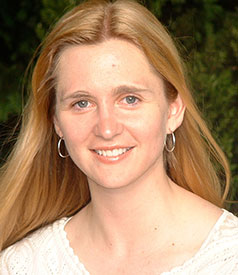
Purpose: We know that books are used as fundamental artifacts in classrooms to build background knowledge, develop vocabulary, and increase reading skills. Equally important though, they expose students to new concepts and cultures and assist students in developing their ideas about social and world norms. The purpose of this professional development is to examine how and why we choose the literature we do for our classes, consider how we can incorporate new and diverse literature into our classroom repertoires, and explore ways in which we can both deepen and enrich our students’ experiences with literature.
Plan: This PD is divided into two component parts. The first is a full-day professional development. This session will be divided into three overview areas. The first area will focus on the idea of Windows and Mirrors, focusing in on the need for students to explore a variety of literature in order to see others, as well as themselves, in the books they read. Activities and discussions will be based around seminal and contemporary literature, anchored with Bishop’s seminal piece that reinforces the significance of expanding our range of literature in real and meaningful ways.
Bishop, R. S. (1990). Mirrors, windows, and sliding glass doors. Perspectives, 6(3), ix–xi.
This first section will flow into the second section, how we think can position our students to become lifelong lovers of literature. One of the most important roles as English Language Arts teachers is to develop critical literacy skills in our students, helping them expand their repertoire of understanding, interpretation, and perspective. Equally as important, we want to ensure that our students leave our classes set on a path for lifelong learning through reading. What we do and how we approach teaching literacy and literature will directly impact both of these goals. Contemporary research will be provided, and the session will be grounded in samplings of Gallagher’s and Miller’s work on how to engage readers in becoming passionate about reading.
Gallagher, K. (2009). Readicide: How schools are killing reading and what you can do about it. Stenhouse Publishers.
Miller, D. (2009). The book whisperer: Awakening the inner reader in every child. Jossey-Bass.
The final section of the full-day PD will be considering how we can use Global Thinking Routines to support the learning of literature, and, at the same time, use literature to help build global competency skills. Global Thinking Routines are micro-teaching tools that can foster inquiry about the world beyond one’s immediate environment, engage learners in perspective taking of others’ viewpoints, invite respectful dialog with diverse others, and spark thinking around acting and advocating for a more just and sustainable world.
The second part of the PD will involve meeting with the Language and Literacy team, on a schedule to be determined according to team availability (ideally every other week during a planning period during the remainder of the school year). These sessions will be held via Zoom, or another video-conferencing platform, if desired. The purpose of these sessions will be to engage in dialogue and discussion to 1) continue to digest the material from the full-day PD session, 2) go deeper into each of the three areas, 3) consider the current curriculum map, and 4) consider additional literature that can be integrated into the curriculum. Additional readings and resources will be provided in this second part of the professional development, based both on the three key areas covered in the full-day PD as well as topics that arise during the discussions and dialogue.
